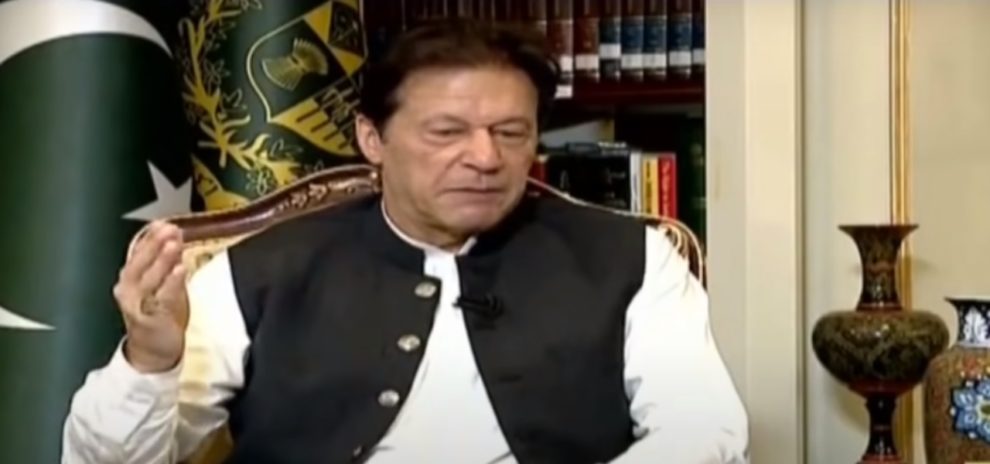Opposition lawmakers in Pakistan moved a no-confidence motion against embattled Prime Minister Imran Khan’s government Monday, as he tries to shore up a wavering coalition over accusations of mismanagement and foreign policy bungles.
Pakistan’s National Assembly will start debating the motion on Thursday and Khan has tried to steady the ship ahead of a likely no-confidence vote next week by nominating a key ally to head the country’s richest province.
Khan is facing the biggest challenge to his rule since being elected in 2018, with opponents accusing him of dragging the country into deeper economic turmoil.
No prime minister in Pakistan’s history has ever seen out a full term, and if the no-confidence vote goes against him he will likely be out of office ahead of elections which must be held before the end of next year.
There are procedural and legal avenues that could delay the inevitable, however.
“Our struggle is aimed at restoration of true democracy,” Bilawal Bhutto Zardari, chairman of the opposition Pakistan People’s Party (PPP), told a news conference after the national assembly accepted the motion.
Zardari was sitting alongside Shehbaz Sharif, leader of the Pakistan Muslim League-N (PML-N), which along with the PPP dominated national politics for decades until Khan forged a coalition against the usually feuding dynastic groups.
Also present was Fazlur Rahman, who leads the far-right Jamiat Ulema-e-Islam (JUI-F) party.
More than a dozen members of Khan’s Pakistan Tehreek-e-Insaf (PTI) party — as well as several representatives of tiny coalition partners — have signalled they may support the opposition in the no-confidence vote.
A simple majority in the 342-seat assembly will carry the day, and the opposition claims it has the votes.
So wafer-thin is Khan’s coalition majority, that in a bid to shore up support Monday he nominated Chaudhry Pervaiz Elahi as chief minister of Punjab province, the country’s richest and most populous.
Elahi is a leader of the Pakistan Muslim League-Q (PML-Q) and had apparently been wavering in support for Khan, but party officials said his appointment should guarantee their five votes.
Khan has spent weeks railing against his opponents, and claimed Sunday he was victim of a “foreign conspiracy” aimed at unseating him.
“We have been threatened in writing but we will not compromise on national interests,” he told a rally attended by thousands of supporters bussed in from around the country.
Opposition parties were holding their own rally in the capital Monday night under a blanket of security.
Khan was elected after promising to sweep away decades of entrenched corruption and cronyism, but the opposition has accused him of mounting a witch hunt against his opponents.
Voted in by an electorate weary of the two-party dynasties that have dominated Pakistan politics since independence, he has struggled to maintain support, with inflation skyrocketing, a feeble rupee and crippling debt.
Some analysts say Khan has lost the crucial support of the military — claims both sides deny — but Pakistan’s army is key to political power.
There have been three military coups — and at least as many unsuccessful ones — since independence in 1947, and the country has spent more than three decades under army rule.
